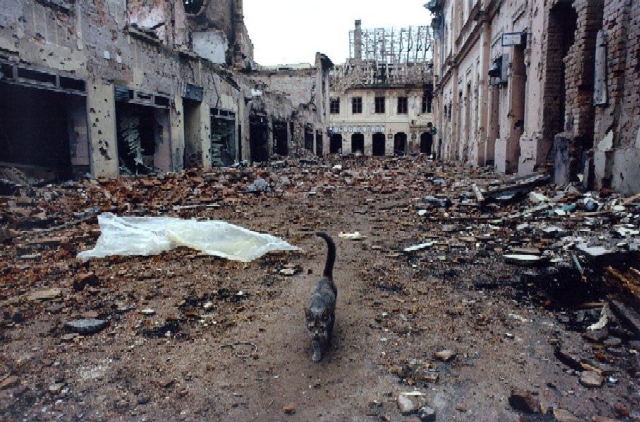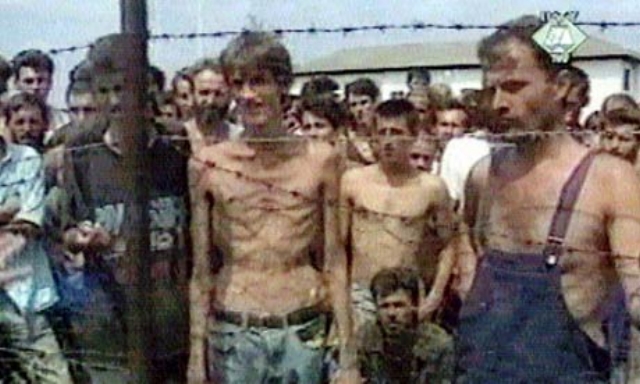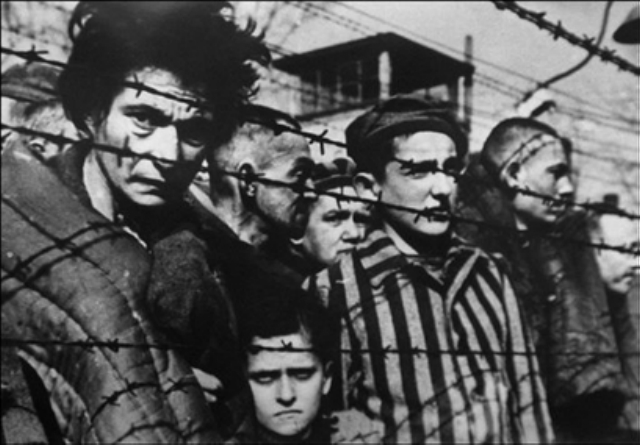Reflections on the final report of the Genocide Prevention Task Force
http://www.croatia.org/crown/articles/9688/1/Reflections-on-the-final-report-of-the-Genocide-Prevention-Task-Force.html
By Prof.Dr. Slaven Letica
Published on 01/2/2009
Primary Prevention of Genocide




Contact: slletica@inet.hr

Contact: sgmestrovic@gmail.com
 | “Preventing Genocide: A Blueprint for U.S. Policymakers” is an extremely important political and cultural event, not only for the American government but also for the countries and nations which have recently suffered tragic genocidal experiences (Rwanda and Bosnia) or are experiencing them right now (Darfur and Congo). |
Call on the new administration to make preventing genocide a national priority
Primary Prevention of Genocide

| The recent publication of the final report of the Genocide Prevention Task Force (GPTF) “Preventing Genocide: A Blueprint for U.S. Policymakers” is an extremely important political and cultural event, not only for the American government but also for the countries and nations which have recently suffered tragic genocidal experiences (Rwanda and Bosnia) or are experiencing them right now (Darfur and Congo). The report is very important for all who are potentially threatened, most often minority, religious, ethnic, cultural or tribal communities in pluralistic, failed, captured, corrupted, non democratic nation-states. A sense of security and hope is offered to them by the part of the report in which its authors “call on the new administration and Congress to make preventing genocide and mass atrocities a national priority”. The new American genocide prevention policy, as the GPTF suggests, should be based on “a comprehensive policy approach designed to ensure an effective response to genocide that is not held hostage to arguments over resources, intelligence, geography, sovereignty, or legal definition”. The terrifying statistical data on the “genocidal twentieth century” (let us call it that) completely justifies this new political approach. Only radical change in the paradigms of “peace keeping” and “humanitarian aid” (which are still dominant in the policy of the world community toward genocide) can stop the cultural paradox discussed by Madeleine K. Albright in her Forward: “The world agrees that genocide is unacceptable and yet genocide and mass killings continue”. Robert J. Sternberg, professor of psychology and Dean of Arts and Sciences at Tufts University, who authored the book Psychology Of Hate (2004) has captured the public’s attention with the publication of shocking statistics concerning the evils of genocide. According to Sternberg: “In the 36,525 days of the twentieth century, 100 million to 160 million civilians lost their lives in massacres. That's an average of more than 3,000 innocent deaths per day, and the pace has not slackened in the new millennium. Statistically speaking, September 11 was an ordinary day.” |

| As co-chair of the GPTF, Madeleine K. Albright also wrote: “We believe that preventing genocide is possible, and that striving to do so is imperative both for our national interests and our leadership position in the world.” As researchers of the phenomenon of genocide in Bosnia-Herzegovina and authors of a number of books about that specific type of genocide (“ethnic cleansing”) we share both optimistic beliefs held by the GPTF: a) that genocide is generally preventable and b) that genocides and other mass atrocities should be one of national (US) and global (UN) priorities. The 34 recommendations discussed in the report are an excellent example of what is called “secondary prevention” in medicine. It is a proposal of measures that should, in GPTF’s opinion, be taken by the 44th president of the United States, the new Administration, and the U.S. Congress in order to prevent genocide and mass atrocities which have already started to happen. However, based on the research and the experiences of ethnic cleansing in Croatia, Bosnia and Kosovo, we believe that in addition to the above mentioned program of “secondary prevention” it is also necessary to outline a detailed global strategy of “primary prevention” against genocide. The United States government, the UN, but also NGOs and civil societies world-wide should have active and clearly defined roles in this prevention. Using “primary prevention,” one should consider taking action for the prevention of genocide before it starts to appear as “symptoms and signs” discussed by the report. Primary prevention should concentrate on tracking, researching, and recognizing what medical practice calls “risk factors” which could lead to genocide. Although the historical, economic, social, and mass-psychological circumstances in which modern genocidal movements appear are different to an extent, so that every genocide is in a way new, unique and unrepeatable, there are a number of common denominators or patterns which are possible to track and recognize in modern societies (due to the development of modern social sciences, but also the development of communication and information systems) a long time before the mass and even individual crimes start to happen (by using the technique of “pattern recognition”). |

| Our research in Bosnia-Herzegovina has confirmed the conclusions previously reached by notable authors in genocide-Holocaust studies (Leo Kuper, Norman Cohn, Zygmunt Bauman, Norman Cigar): apocalyptic, genocidal movements appear in specific types of nation-states and societies. They appear in pluralistic, multicultural (multiethnic, multi religious) states and societies in periods of absolute social anomie, totalitarian regimes, and extreme social anxiety. It is also known that the crucial precondition and the origin of every genocidal movement and genocidal ideology (Nazi, Communist) is HATE. However, not every hate, not even malignant and aggressive hate (the one referred to as “burning hate” by Robert Sternberg) leads to genocidal movement and to genocide. The genocidal potential is given to that hate which receives intellectual, media, ideological, political and military support. It is not possible, even necessary, to prohibit individual and collective hate in free societies, but it is possible and very necessary to maximally sanction hate crimes, especially the ones directed against minorities. Modern societies should take a zero tolerance policy in dealing with hate and hate crimes which can have the consequence of creating genocidal movements. Moreover, it is our opinion that it is possible to create and institutionalize the instruments for tracking risk factors of genocide by establishing a “Hate Index” and a “Hate Watch”. Hate or hates are not the only, even not the most important, “risk factor” for genocide. Our own research and the analysis of a vast number of scientists points to a number of contributing factors: poverty, hunger, illiteracy, religious and ideological fanaticism. “The novelties” of apocalyptic and genocide movements will surely continue into the twenty-first century, and that is why it is important to be reminded that Bosnia was a case of a specific type of genocide (“ethnic cleansing”) which was not discovered by politicians, not even by U.N. observers, but by activists, humanitarian groups, human rights abuse observers, scientists, and journalists. Due to all above mentioned reasons we deem that it is necessary to start with the project “Preventing Genocide: A Blueprint for Civil Societies” at the U.N. as an addition to the already published report “Preventing Genocide: A Blueprint for U.S. Policymakers”. Slaven Letica, Zagreb University, Croatia Stjepan G. Mestrovic, Texas A&M University |

Contact: slletica@inet.hr

Contact: sgmestrovic@gmail.com
Formated for CROWN by Nenad N. Bach
Distributed by www.Croatia.org . This message is intended for Croatian Associations/Institutions and their Friends in Croatia and in the World. The opinions/articles expressed on this list do not reflect personal opinions of the moderator. If the reader of this message is not the intended recipient, please delete or destroy all copies of this communication and please, let us know!...or simply enjoy.